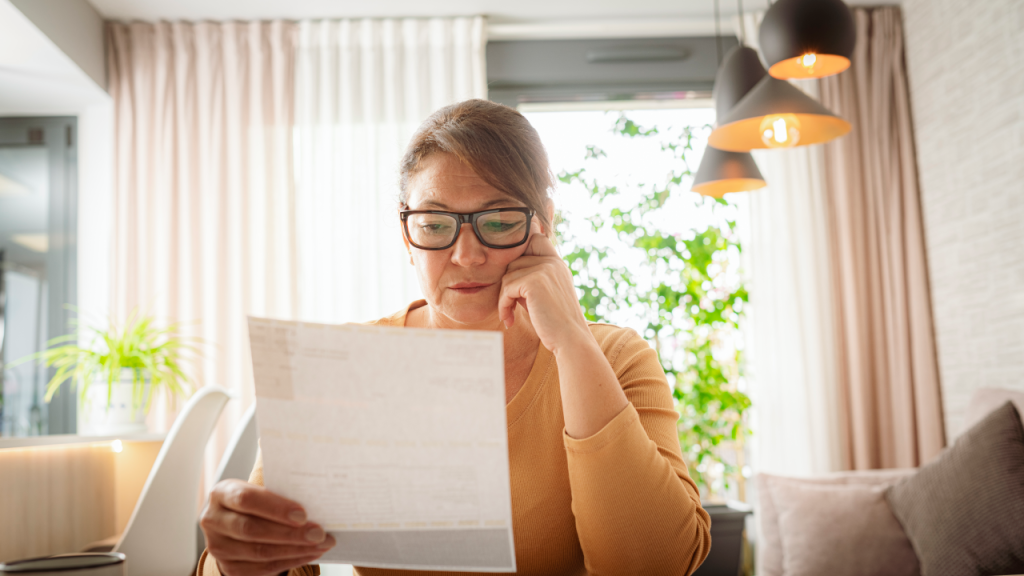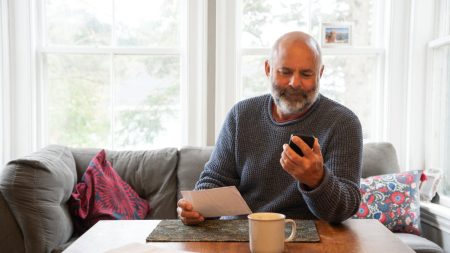Key takeaways
- If you file for Chapter 7 bankruptcy, you may be able to keep your home, especially if you have a relatively low amount of equity.
- If you file for Chapter 13 bankruptcy, you’re more likely to keep your home, provided you can make any missed payments along with your current ones.
- Immediately after bankruptcy, home loans are off the table, but you may be able to get a new mortgage within a few years.
Bankruptcy proceedings can give you some much-needed breathing room, but they also come with serious financial ramifications — including, potentially, for your home. Exactly what happens to your mortgage if you file for bankruptcy, though, varies based on a few factors.
“What happens depends on whether your payments are current, the type of bankruptcy and whether your property has legal protection from creditors,” says Laura Adams, personal finance expert and host of the Money Girl podcast.
What is bankruptcy?
Bankruptcy is a legal proceeding that a person or entity can initiate if they’re unable to repay their debts. There are a handful of different types, and they each treat the outstanding debt differently. Individuals most commonly file for Chapter 7 or Chapter 13 bankruptcy.
| Type of bankruptcy | What it means for you |
|---|---|
| Chapter 7 |
Often referred to as liquidation, this type of bankruptcy means selling off your non-exempt assets to repay your debt. A trustee oversees this sale. Any remaining unsecured debt (debt not backed by collateral) gets discharged, meaning you’re no longer legally obligated to repay it. |
| Chapter 13 |
Also called reorganization, these bankruptcy proceedings set up a repayment plan for your debts. This plan needs to get approved by the court and gives you 3–5 years to repay. |
How does Chapter 7 bankruptcy affect my mortgage?
When you file for Chapter 7 bankruptcy, you’ll sell some of your assets to satisfy your debt. This may include your house — but not always.
In the short term, filing for Chapter 7 may actually help you stay in your home, says Bryan Bowmer, broker and owner of Future First Lending, based in Tustin, California. He notes that a bankruptcy filing can trigger an automatic stay, which temporarily prevents creditors from taking collections actions against you — including foreclosing on your home.
Longer term, your ability to remain in your home depends on your state’s laws, among other factors. It is certainly possible to lose your house in Chapter 7 bankruptcy. “If your mortgaged property isn’t excluded from a Chapter 7 bankruptcy, a lender with a lien can force its sale,” Adams says.
Filing Chapter 7 doesn’t typically wipe out your mortgage debt, which is secured by your house. If you don’t feel as though you can continue to pay your mortgage, you may surrender your home to the lender, which absolves you of further mortgage obligations.
Or, if you’d prefer to keep your home, and your lender agrees to it, you may pursue reaffirmation. With this option, you’d continue to make payments on your mortgage according to the original terms, as if you hadn’t filed for bankruptcy.
However, all of this assumes that your home isn’t exempt from Chapter 7 bankruptcy.
When is your house exempt from Chapter 7 bankruptcy?
Exemptions are generally based on the amount of equity you have in your home, and the limits — expressed as a dollar amount — vary by state.
Usually, if your equity amount is lower than the exemption limit, you can keep your home. If you have more equity than the exemption, you might be forced to sell. In that case, you can work with your trustee and your lender to see if reaffirmation is an option.
Some states also have unlimited exemption amounts. “For instance, in Florida, homestead rights protect your primary residence from creditors if you’ve lived there several years and the property doesn’t exceed a size limit,” Adams says.
In bankruptcy law, this concept is called the homestead exemption. It’s generally predicated on the assumption that you own the house, and it’s your primary residence. You also need to have lived there for a minimum amount of time — usually, at least two years.
How does Chapter 13 bankruptcy affect my mortgage?
It’s a lot easier to keep your home in Chapter 13 bankruptcy. In this scenario, you make a plan to repay your debt over three to five years. Because you’re not trying to wipe out your debt, there’s no risk of the house getting sold to repay your creditors.
“For mortgages, this provides an opportunity to catch up on missed payments while maintaining current payments,” Bowmer says. “However, borrowers must demonstrate steady income and commitment to the repayment schedule to keep their home.” If you can’t afford both your monthly mortgage obligation and your Chapter 13 payments, your lender may still foreclose.
Can you get a mortgage after bankruptcy?
“You can get a mortgage after bankruptcy,” Adams says. “However, there’s typically a two- to four-year waiting period, depending on your bankruptcy type, financial situation and the mortgage you want.”
Government-backed loans, like FHA loans and VA loans, are a bit more lenient, typically allowing applicants who’ve been discharged from Chapter 7 at least two years prior. FHA loans will also accept applicants who are at least one year into a Chapter 13 repayment plan, provided they have court approval.
Conventional loans typically require borrowers to wait four years after a Chapter 7 discharge or dismissal to apply for a new mortgage. If you’ve filed for Chapter 13, you can apply two years after a discharge or four years after dismissal.
In short, after bankruptcy, home loans are off the table for a season. You don’t have to sit idly by, though. Bowmer recommends using the time to rebuild your credit, focusing on making on-time payments. He also suggests saving for a down payment, if you can, and keeping your debt-to-income ratio as low as possible.
FAQs
Read the full article here










